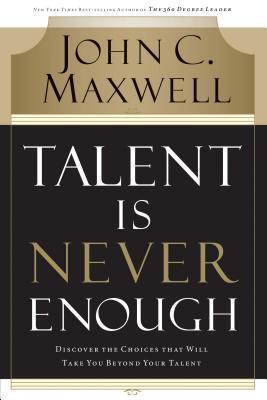
So Good They Can't Ignore You: Why Skills Trump Passion in the Quest for Work You Love
Book Description
What if the secret to a fulfilling career lies not in chasing your passion, but in mastering your craft? Cal Newport unveils the transformative power of skill acquisition in "So Good They Can't Ignore You." This compelling exploration shatters the myth of passion-driven work, revealing a blueprint for building extraordinary careers through deliberate practice and relentless dedication. Readers will journey through real-life stories that challenge conventional wisdom and spark a rethinking of success. How far would you go to cultivate unparalleled skills that not only ignite your work but render you indispensable in a world obsessed with passion?
Quick Book Summary
"So Good They Can’t Ignore You" by Cal Newport dismantles the common belief that following your passion is the path to a fulfilling and meaningful career. Instead, Newport argues that passion is the result, not the cause, of achieving mastery and autonomy in one’s work. Through research and real-world examples, the book presents the idea that developing rare and valuable skills — what Newport calls "career capital" — is the foundation of career satisfaction. By focusing on deliberate practice, seeking out challenging projects, and systematically increasing your value, you carve out a unique, desirable career. Newport’s message is both practical and motivating, offering a roadmap for individuals seeking to create work that is both meaningful and sustainable, not by chasing elusive passions but by becoming so good that the professional world can’t ignore your contributions.
Summary of Key Ideas
Table of Contents
The Passion Hypothesis Debunked
Cal Newport begins by critiquing the widespread "passion hypothesis" — the belief that people will find satisfying work by discovering and following their pre-existing passions. He finds little evidence to support this idea and suggests, instead, that most people cultivate interest and passion for their work only after becoming highly competent at it. Many successful professionals, Newport observes, didn’t start out with an intense passion but rather developed one over time as they mastered their craft and gained more control over their work environments.
The Importance of Career Capital
Central to Newport's thesis is the concept of "career capital" — the collection of rare and valuable skills you develop that enable you to shape your professional life. He argues that acquiring career capital should be prioritized over the pursuit of passion. This capital creates leverage, allowing individuals to negotiate better roles, more control, and, ultimately, find more engaging and satisfying career opportunities. Newport underscores the importance of deliberately stretching one’s abilities and accumulating skillsets that are highly valued in the marketplace.
Deliberate Practice for Mastery
To acquire such career capital, Newport emphasizes deliberate practice, a methodical and challenging approach to skill development. This involves setting goals that push beyond your current ability and seeking continuous feedback. He advocates adopting a craftsmen mindset, characterized by focusing on what value you can provide rather than fixating on what your job is giving you. By honing this mindset and systematically improving at your chosen craft, you become indispensable and open doors to more autonomy and mission-driven work.
The Craftsman Mindset vs. the Passion Mindset
Newport contrasts the craftsmen mindset with the passion mindset, which is preoccupied with personal enjoyment and meaning from day one. He argues that the passion mindset inevitably leads to disappointment and anxiety, especially early in a career. Rather than waiting for work to become inspiring, Newport urges readers to focus on becoming excellent first, which in turn generates more meaningful and satisfying work environments.
Control, Mission, and Career Satisfaction
Finally, Newport explores how control and mission become possible once you have acquired sufficient career capital. True autonomy — the ability to choose what, how, and for whom you work — requires this capital so you're able to make decisions without risk of jeopardizing your position. Newport also explains the value of developing a compelling mission to further drive and focus your work, but stresses that the ability to pursue such a mission is contingent upon first becoming so good they can't ignore you.
Download This Summary
Get a free PDF of this summary instantly — no email required.





